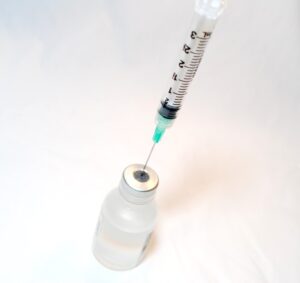September brought six new entries to our top ten list on topics varying from artificial intelligence to medical students career intentions.

Risk of myocarditis and/or pericarditis following mRNA COVID-19 vaccination
Alami et al conducted a systematic review and meta-analysis looking at epidemiological studies of individuals who received a mRNA COVID-19 vaccine, reported a risk of myo/pericarditis and compared the risk of myo/pericarditis to individuals who did not receive a mRNA COVID-19 vaccine. A higher risk was found in individuals who were vaccinated however the absolute numbers of myo/pericarditis cases remains low. The authors note given the effectiveness of the mRNA COVID-19 vaccine research should focus on understanding the biological mechanisms behind these rare cardiac events and identifying those most at risk.
Career intentions of UK medical students
Ferreira and their colleagues performed a mixed method study of UK medical students across all UK medical schools to ascertain students career intensions and reasons. The authors found while a majority of students (83.98%) planned to complete their foundation programme, less than 50% of students intended to pursue specialty training. A large portion of students expressed plans to pursue other careers or emigrate.
Conducting Systematic reviews using AI
In this communication article van Dijk et al discuss how artificial intelligence tools can be used when conducting Systematic reviews. They suggest that AI tool use can be helpful in title/abstract screening however they point out potential risks to methodological quality and possible ways to avoid these issues.
Trends in BMI and obesity
Li et al examined trends in obesity US adults between 2003 and 2018 using the NHANES database. The authors found while adult obesity continues to rise there have been no significant changes in the annual growth of adult obesity prevalence between 2003–2004 and 2017–2018. The prevalence was higher amongst older adults, women, non-Hispanic blacks, and those who did not graduate college, were physically inactive, reported lower daily total energy intake and had poor economic status.
Different decisions for their next birth experience
Keedle and their colleagues conducted a large survey on Australian women’s birth experiences between 2016 and 2021. The authors found 85% of the comments related to making different choices regarding their next birth experience. The survey was available in seven languages however the uptake was higher amongst English speakers, women over 30 and those university educated.
Adverse childhood experiences and pregnancy complications
This Systematic review and Meta-analysis by Mamun et al examined the association between adverse childhood experience (ACE) and risk of pregnancy complications/adverse pregnancy outcomes. Their results suggest ACE exposure is significantly associated with adverse pregnancy outcomes. However there was a significant difficulties assessing dose-response relationships and a higher proportion of the studies were from high income western countries.
Below are the top ten most-read papers in BMJ Open during September 2023: